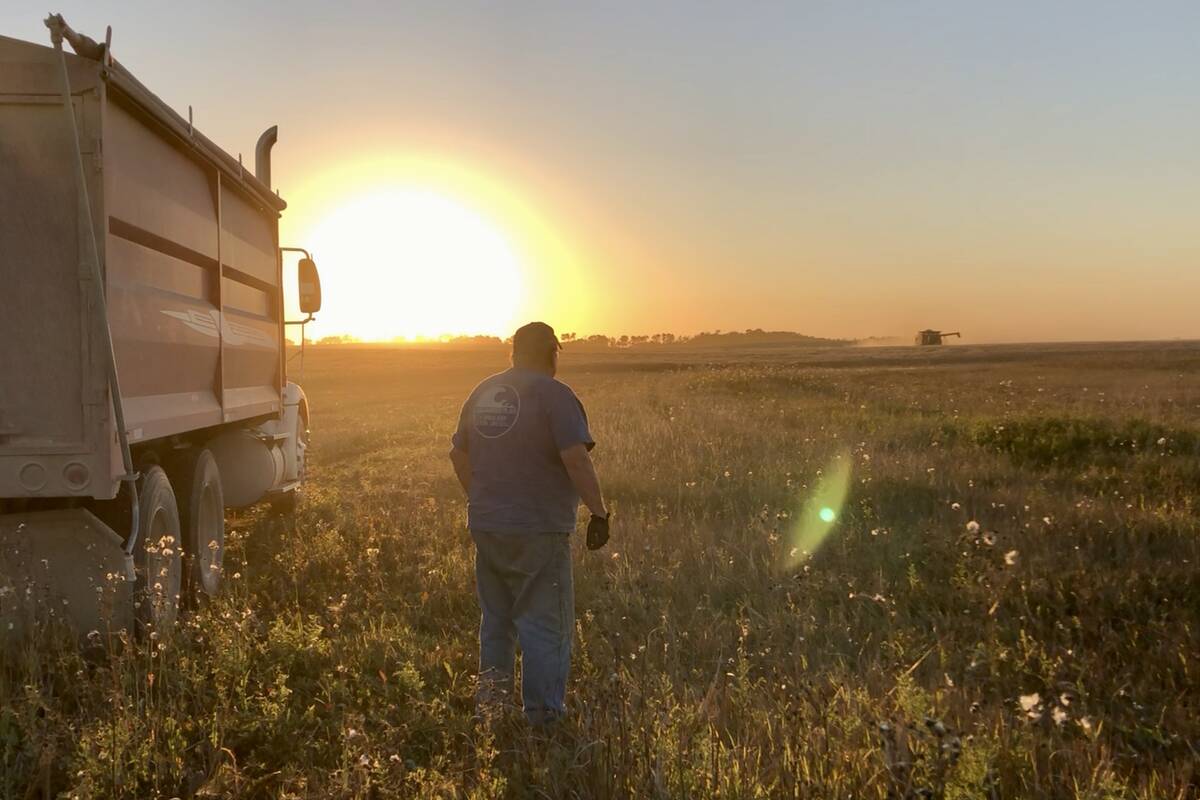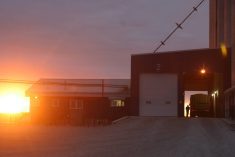Saskatchewan’s population would almost double if everybody who was born in the province returned home.
Al Scholz, executive director of Saskatchewan Agri-Vision Corp., says 800,000 Saskatchewan-born people live somewhere else.
But he told a Nov. 23 meeting of the Community Development Society of Saskatchewan that successful economic development is the only way to increase the province’s population.
He said Saskatchewan people need to ask themselves where their kids got the idea that there are no jobs for them in the province.
He said it is not the provincial government’s job to ensure a town survives. Rather, local initiative, often by as few as five people, will make the difference. However, the imagination and credibility of those leaders needs to be supported by more people.
Read Also

VIDEO: Bittersweet harvest for this family farmhand
Bruce Burnett helps his brother harvest wheat and canola for the last time on the family farm in Manitoba where they both grew up.
Scholz said revitalization starts when a community has an “aha!” moment, which he described as the realization that the town has more in its past than its future.
He said that in Manitou Beach southeast of Saskatoon, the moment came when fire destroyed the old swimming pool. That led the resort town to build a spa 15 years ago that draws tourists.
For Ogema, it was a sudden awareness that the town was no longer the regional service centre, but on the edge of everyone else’s development plans. Revival came with a large hog farm that created 50 jobs and improved prospects for local truckers and welders.
Scholz said Wilkie’s “aha” moment came in 1996 when the hospital was closed.
Margaret Skinner, who with her husband Jim has twice been named Wilkie’s citizen of the year, told the meeting that “they weren’t closing the hospital on us. We allowed it to happen” by letting businesses drift away.
Skinner said Wilkie was shaken out of complacency by an idea in a coffee shop with seven farmers talking about the need for grain cleaning on the Prairies.
Their idea turned into a public meeting within two months, followed by recruiting people to an interim board, raising donations for a feasibility study, raising investment money from neighbours and then, three years later, opening North West Terminal Ltd.
Today the terminal draws grain from 200 kilometres, and has spun off a screening pelleting plant and a proposed feedlot, and stimulated a new elevator and farm service centre by two other grain companies.
Skinner said 85 jobs were created and people made better profits on dividends from their shares than putting their money in the bank.
Skinner said it’s also important to show former hockey rivals in neighbouring communities how they will benefit, too.
“You can’t do it yourself. You need to do it regionally.”
She said there were many reasons her town’s projects were successful:
- They made economic sense.
- They were timely because of the removal of the Crow rate and the need to add value to bulk grain.
- They had strong leadership from local people who were not afraid to pay for professional advice.
- The shares were affordable.
Skinner said a terminal, a pelleting plant or a feedlot won’t work for every town. People must build on their local strengths and have an immediate small success to capture public approval.
Wilkie is now looking at a new challenge – developing a $3 million mineral spa and resort.
If people think they don’t have the abilities to turn their district’s fortunes around, they can look at the Leadership Saskatchewan program provided by the Saskatchewan Council for Community Development. Linda Pipke of the council said the program develops skills to help people come together for a common purpose.
She used as an example a credit union that had offices in Elbow and Loreburn and needed to close one to save money. The two towns were asked to make the decision. With council’s help, town residents decided to open the Elbow branch in the summer when the resort filled with people, and then move to Loreburn in the winter to take advantage of people visiting the local arena.
Pipke said communities that have lost their rail line and elevator and see that their hospital is next can use “positive energy and desire and will to work on what we have in common …. We’re trying to help people see successes.”
















